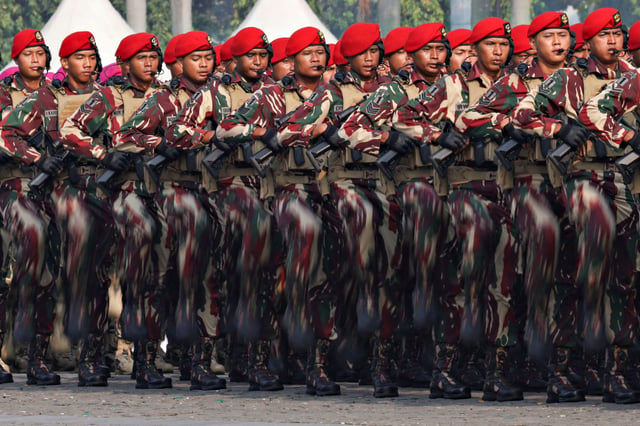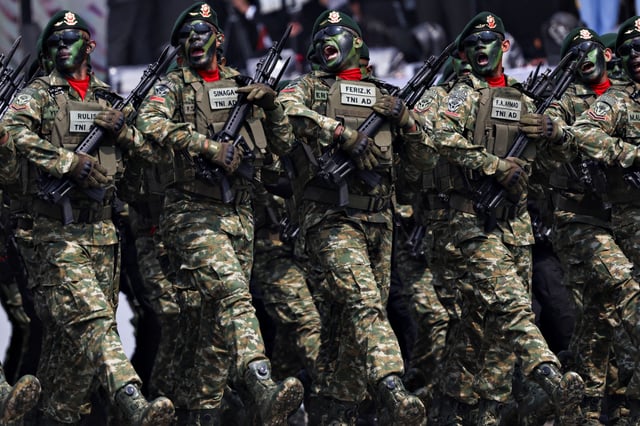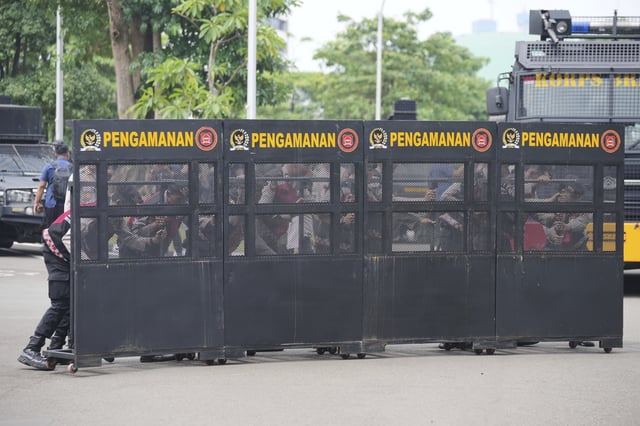Overview
- Indonesia's parliament has officially passed amendments to the 2004 armed forces law, allowing active-duty military personnel to hold civilian roles in agencies such as the Attorney General's Office and counter-terrorism bodies.
- Rights groups warn the changes echo Suharto-era policies, potentially reinstating the military's 'dual function' in governance and threatening democratic progress.
- Critics highlight risks of human rights violations and impunity, as military courts with a history of leniency will handle cases involving military personnel in civilian roles.
- The government defends the amendments as necessary updates to outdated laws, stating that most military officers must resign before assuming civilian positions.
- Protests by civil society groups and students are expected to continue, with a coalition of 186 organizations opposing the law and citing threats to democracy and judicial impartiality.



